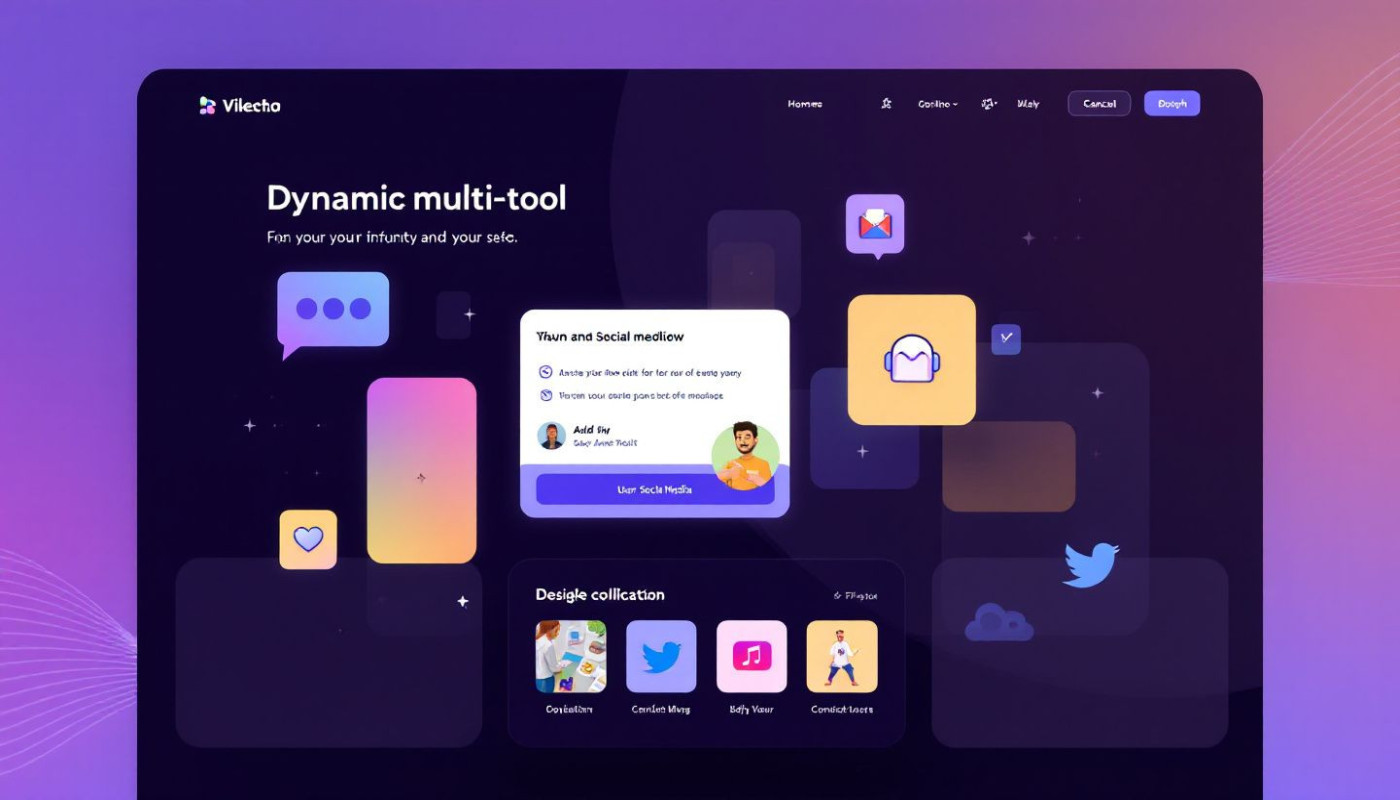Table of contents
In the dynamic realm of digital communication, chatbots have emerged as a transformative tool reshaping interaction between businesses and their customers. With the advent of Smart AI, the landscape of chatbot development is undergoing a seismic shift, introducing unprecedented levels of personalization and efficiency. Explore how this cutting-edge technology is revolutionizing the chatbot experience, promising a future where digital assistants are virtually indistinguishable from human counterparts, and discover the profound impact it holds for industries worldwide.
Evolution of Chatbots with Smart AI
The inception of chatbots marked a rudimentary phase in digital interaction, characterized by basic, pre-programmed responses that lacked depth and understanding. Over time, the trajectory of chatbot evolution has been dramatically reshaped by AI advancements. Today, Smart AI is at the forefront of this transformation, empowering chatbots with unprecedented conversational capabilities. This progression is largely attributed to the integration of context-aware computing, which enables chatbots to interpret and respond to user inquiries with a level of nuance that closely mimics human conversation.
One pivotal innovation in this journey has been the development of conversational AI, a subset of artificial intelligence that focuses on generating natural and seamless dialogues between humans and machines. Coupled with the power of machine learning, conversational AI enables chatbots to learn from interactions, thereby improving their performance over time. This continuous learning process is underpinned by Natural Language Processing (NLP), a technical domain of AI that allows chatbots to parse and understand human language in a way that is both meaningful and contextually relevant. As chatbots have evolved from their primitive beginnings to become sophisticated digital assistants, they have revolutionized the way businesses engage with customers and manage workflows.
To understand the full extent of these advancements and their applications in modern technology, one may see how cutting-edge chatbot solutions are being deployed across various industries. The transition from simple, scripted interactions to complex, context-aware exchanges has unlocked new possibilities, enabling more personalized and efficient customer service experiences.
Enhancing User Experience through Personalization
In the realm of chatbot evolution, Smart AI is a game-changer, particularly in its capacity to deliver exceptionally personalized chatbot interactions. The foundation of this user-centric approach is data-driven personalization, which leverages extensive data analysis to understand and predict individual user preferences and behaviors. Through adaptive learning, these AI-driven chatbots can refine their communication strategies based on real-time feedback, leading to a more responsive and engaging AI user engagement. Predictive analytics play a pivotal role, as they allow the chatbot to not only react to user inputs but also anticipate needs, resulting in highly tailored conversations. This sort of personalization ensures that each interaction is relevant and meaningful to the user, thereby significantly enhancing the overall user experience.
Optimizing Customer Service with AI
With the advent of Smart AI, the landscape of customer service automation has undergone a remarkable transformation. By integrating advanced automation algorithms, chatbots have become incredibly efficient, streamlining interactions between services and consumers. The hallmark of chatbot efficiency lies in its ability to significantly reduce service response times, ensuring that customer inquiries are addressed promptly. This has a profound effect on the customer experience, as immediate support is readily available around the clock. The introduction of AI scalability into chatbots means that businesses can now offer consistent 24/7 support without the need to exponentially increase human labor. This not only elevates customer satisfaction but also represents a cost-effective solution for companies looking to optimize their service models. The continuous improvement of these intelligent systems suggests a promising direction for the future of customer service, where human agents are supplemented by, rather than replaced by, AI counterparts, creating a harmonious blend of empathy and efficiency.
Industry-Specific Applications of Smart AI Chatbots
The advent of smart AI has propelled the utility of chatbots beyond generic customer service tools, morphing them into highly specialized agents within a myriad of sectors. Industry-specific chatbots are now tailored to handle nuanced tasks, enabling a new level of precision in fields such as healthcare and e-commerce. In healthcare, AI-driven chatbots are being deployed to triage patient inquiries, facilitate appointment scheduling, and provide consistent monitoring for chronic conditions. These healthcare chatbots are designed to comply with stringent privacy regulations, ensuring sensitive patient data is handled with the utmost security.
In the realm of e-commerce, chatbots have become indispensable for engaging customers, offering personalized shopping assistance, and managing a vast inventory to streamline the consumer experience. E-commerce chatbots not only respond to customer queries but also anticipate needs based on user behavior and preferences, showcasing the prowess of AI customization.
Integration with existing systems is paramount to the implementation of these sophisticated tools. System integration is achieved through advanced API interfaces, which allow chatbots to communicate seamlessly with databases, CRM platforms, and other software, ensuring that they can operate efficiently within the organizational ecosystem. This symbiosis between chatbots and existing infrastructure is critical for providing uninterrupted and coherent services to end-users. Whether authored by a domain expert in AI applications across industries or a systems integration consultant, the emphasis on domain-specific customization and technical integration is unmistakable in the narrative of smart AI’s transformative impact on chatbot development.
The Future of AI-Driven Conversational Interfaces
The trajectory of AI future trends points towards a more nuanced and sophisticated realm of conversational interfaces, where natural language processing evolves to comprehend the subtleties of human emotion. The integration of emotion AI, particularly through sentiment analysis, is poised to transform chatbots from mere question-answering machines into empathetic digital companions capable of recognizing and responding to user emotions. This advancement in emotion recognition heralds a new era of human-computer interaction, where chatbots will be better equipped to offer personalized support and improve user experience.
Pioneering this innovation, advanced AI decision-making will enable chatbots to execute complex tasks, make informed suggestions, and even predict user needs before they are explicitly stated. This will not only refine the efficiency of conversational interfaces but also enable them to seamlessly integrate into daily life, serving as virtual assistants that understand context and history.
Amidst these exciting developments, the role of ethical AI becomes increasingly paramount. As AI systems gain deeper access to personal data and affect decision-making, addressing privacy concerns and ensuring the ethical use of AI is vital. The responsibility falls on developers and AI ethicists to establish guidelines and safeguards that protect user data and promote transparency. In fostering ethical AI, trust in conversational interfaces is reinforced, paving the way for these tools to become indispensable components of modern communication.






